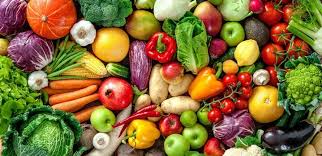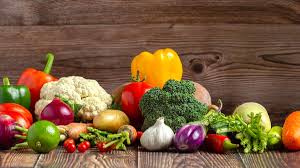Summer is a season of abundance, a time when gardens overflow with vibrant, nutrient-rich vegetables. Vegetables of Summer are a vibrant array of colors and flavors, perfect for refreshing salads. The longer days and warmer temperatures create the perfect conditions for a variety of crops to thrive, offering an array of flavors and health benefits. Whether you’re a seasoned gardener or a local market enthusiast, summer vegetables are a delightful addition to any meal. Let’s explore some of the best vegetables that make summer a culinary paradise.
Contents
The Best Vegetables of Summer:
Tomatoes: The Quintessential Summer Vegetable
No summer vegetable garden is complete without tomatoes. These sun-loving plants produce an array of varieties, from sweet cherry tomatoes to hefty beefsteaks. Tomatoes are incredibly versatile, perfect for salads, sandwiches, salsas, and sauces. Rich in vitamins C and K, potassium, and antioxidants like lycopene, tomatoes support heart health and have anti-inflammatory properties.
For the best flavor, allow your tomatoes to ripen on the vine. Try heirloom varieties for their unique flavors and colors, which range from deep purples to vibrant yellows. A Greek salad featuring seasonal summer vegetables provides a deliciously nutritious option with minimal calories, perfect for maintaining a light and healthy diet.

Zucchini: The Prolific Producer
Zucchini is a summer squash that can be incredibly prolific, often producing more than enough to share with neighbors. This versatile vegetable can be grilled, sautéed, spiralized into noodles, or baked into bread. It’s low in calories but high in vitamin C, potassium, and antioxidants. Grilling vegetables of summer over an open flame enhances their natural sweetness
To keep zucchini plants productive, harvest them when they’re about 6-8 inches long. Smaller zucchinis are tender and have a better flavor, while oversized zucchinis can be grated for baking. In Mediterranean cuisine, vegetables of summer like tomatoes and zucchini are key ingredients.
Cucumbers: Cool and Crisp
Cucumbers are the epitome of refreshment on a hot summer day. These crisp, hydrating vegetables are perfect for salads, pickles, and even smoothies. Cucumbers are primarily water, making them a great low-calorie snack, and they provide vitamins K and C, potassium, and magnesium.
For a twist, try growing lemon cucumbers, which are round and yellow but taste just like the traditional green varieties.
Bell Peppers: Colorful and Crunchy
Bell peppers add a splash of color and a crunch to summer dishes. Available in green, red, yellow, orange, and even purple, bell peppers are sweet and slightly tangy. They’re high in vitamins A and C, which support immune health and skin health.
Enjoy bell peppers raw in salads or cooked in stir-fries and stuffed dishes. Red bell peppers, which are simply ripened green peppers, have the highest nutritional content and the sweetest flavor.
Eggplant: The Versatile Nightshade
Eggplant, with its glossy purple skin, is a staple in many summer dishes around the world. Whether grilled, baked, or sautéed, eggplant’s spongy texture absorbs flavors beautifully. It’s a good source of fiber, vitamins B1 and B6, and antioxidants like nasunin, which supports brain health.
For a unique variety, try growing Japanese eggplant, which is slender and tender, or the small and round Indian eggplant, perfect for curries.
Sweet Corn: The Taste of Summer
Sweet corn is synonymous with summer. Grilled, boiled, or roasted, corn is a delicious treat. Fresh corn is a good source of fiber, vitamins B and C, magnesium, and antioxidants like lutein and zeaxanthin, which promote eye health.
For the sweetest flavor, eat corn soon after harvesting. Try different varieties such as bi-color or super-sweet hybrids for a twist on the classic.
Green Beans: Crisp and Tender
Green beans are a garden favorite, easy to grow and quick to harvest. They can be eaten raw, steamed, sautéed, or added to casseroles. Green beans are low in calories but high in vitamins A, C, and K, as well as folic acid and fiber.
Bush beans and pole beans are the two main types. Bush beans are compact and quick to mature, while pole beans grow tall and produce over a longer period.
Tips for Growing Summer Vegetables
Choose the Right Varieties
When selecting varieties of summer vegetables to grow, consider your local climate and growing conditions. Opt for cultivars that are well-suited to your region’s temperature and sunlight levels. For instance, choose heat-tolerant tomato varieties if you live in a hot climate, or select compact bush bean varieties for limited garden space. Researching and selecting the right varieties ensures healthier plants and a bountiful harvest throughout the summer season.
Plant in Full Sun
Planting summer vegetables in full sun is crucial for their growth and productivity. Most vegetables, such as tomatoes, peppers, and cucumbers, require at least six to eight hours of direct sunlight daily to thrive. Adequate sunlight ensures strong photosynthesis, promoting robust plant development, flower production, and fruit ripening. Choosing a sunny spot in your garden or ensuring containers are placed where they receive ample sunlight will help maximize the yield and flavor of your summer harvest.
Water Consistently
Watering consistently is crucial for the health and productivity of summer vegetables. Most vegetables require at least 1 inch of water per week, either from rainfall or irrigation. It’s essential to water deeply and evenly to encourage deep root growth and to ensure moisture reaches the entire root zone. Avoid overhead watering in the heat of the day to prevent evaporation and minimize fungal diseases. Checking soil moisture regularly and adjusting watering schedules based on weather conditions will help maintain vibrant and thriving summer vegetable plants.

Mulch and Fertilize
Harvest Regularly
Harvesting vegetables regularly is crucial for maintaining plant productivity and ensuring peak flavor and freshness. By picking vegetables promptly as they mature, you encourage continuous growth and prevent plants from diverting energy into producing seeds or becoming overripe. Regular harvesting also helps to maintain the quality of the crop, ensuring that each vegetable retains its optimal taste, texture, and nutritional value. Additionally, harvesting regularly allows you to enjoy a steady supply of fresh produce throughout the summer season, maximizing the rewards of your gardening efforts.
Conclusion
Vegetables of Summer burst with color and flavor, perfect for refreshing salads. Summer vegetables are nature’s gift, offering a spectrum of flavors, textures, and nutritional benefits that elevate culinary experiences. From the juicy sweetness of ripe tomatoes to the crispness of fresh cucumbers and the versatile uses of eggplant and zucchini, each vegetable brings its own unique charm to the table. Whether enjoyed freshly picked from the garden or sourced locally, these seasonal delights not only tantalize the taste buds but also nourish the body with essential vitamins, minerals, and antioxidants. Embrace the abundance of summer and savor the vibrant colors and flavors of these sunny season stars in every delicious bite.



